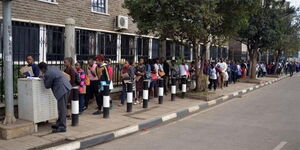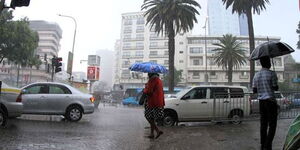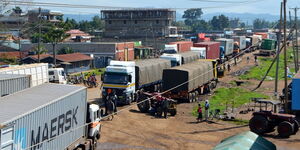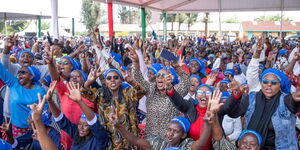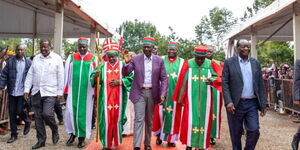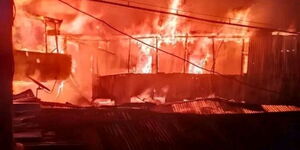Several people have been critically injured after protests involving refugees turned violent at the Kakuma Refugee Camp on Monday, March 3.
Demonstrations, which spilled into their second week, took an unfortunate turn as police attempted to disperse irate refugees who were determined to make their way towards the United Nations High Commissioner for Refugees (UNHCR) offices in Kakuma Refugee Camp.
For the past several days, refugees have staged peaceful protests, demanding the reinstatement of essential supplies, which were cut due to funding shortages. However, inaction left a section of the refugees impatient, prompting them to march to the UNHCR offices.
Images and videos obtained by Kenyans.co.ke depict distressing scenes, with sections of protestors sprawled on the floor while others accused law enforcement officers of using excessive force.
For a better part of Monday morning, police engaged in running battles with the refugees, firing tear gas in an attempt to disperse the irate crowd.
According to residents, living conditions at the Kakuma Refugee Camp have deteriorated, with tens of refugees unable to access food and other essential services.
Earlier, the United Nations High Commissioner for Refugees (UNHCR) and the World Food Programme (WFP) had issued a warning, stating that financial constraints could lead to a scaling down of operations.
Recent reductions in humanitarian aid, largely attributed to funding cuts from the United States, have also been blamed for the financial constraints on UNHCR. The US was a key donor to refugee programmes in Kenya.
Not only has the scarcity of basic resources such as food led to widespread hunger across the camp, but it has also resulted in increased insecurity.
Notably, a large proportion of refugees at the Kakuma Refugee Camp are Sudanese nationals. The camp, alongside the Kalobeyei settlement, hosts over 148,000 South Sudanese refugees—one of the largest refugee populations globally.
In 2013, two years after South Sudan became an independent country, another civil war erupted, causing armed violence and economic decline.
This forced millions to flee to neighbouring countries, including Uganda, Ethiopia, the Democratic Republic of Congo, and Kenya.

